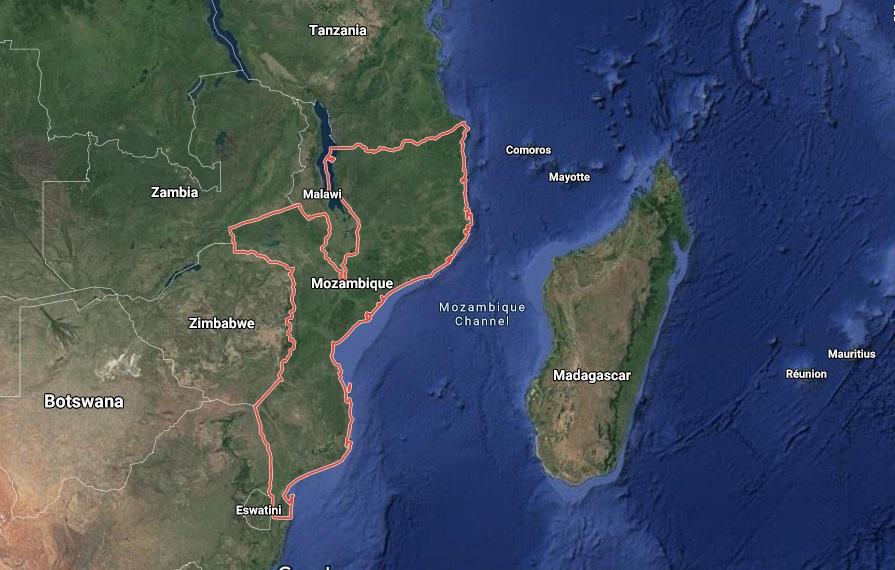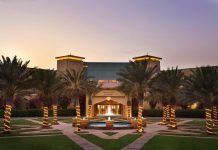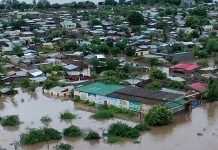Africa-Press – Mozambique. In this issue
Foreign troops
The civil war
Covid-19
Rwanda confirms troops for Cabo Delgado; SADC says ‘We are going to war’
Rwanda “plans to deploy” troops to Cabo Delgado Rwanda Defence Force spokesman Ronald Rwivanga told Bloomberg (24 June), adding that the “plans are not finalized.”
A Rwandan military mission was seen in Pemba on 8 May (this newsletter 545), just 10 days after President Nyusi flew to Rwanda on 28 April and met President Paul Kagame. Intelyse (27 June) reports that a Rwandan military contingent is currently (27 June) present in Pemba. Mozambique has yet to inform SADC of any planned deployment from Rwanda, Stergomena Tax, SADC executive secretary, told Bloomberg.
Meanwhile, on 23 June an extraordinary SADC summit in Maputo “approved the mandate for the SADC Standby Force Mission to the Republic of Mozambique, to be deployed in support of Mozambique to combat of terrorism and acts of violent extremism in Cabo Delgado.”
SADC has accepted the proposal of its April technical mission, but there is still a long way to go. Who will supply and pay for the 3000 troops, submarine, helicopters and other equipment called for by the mission? The role of the intervention force has yet to agreed. And its final deployment will need approve of both SADC leaders and Mozambique, which means Mozambique may still pick and choose those parts of the project it wants and can control.
Nevertheless, SADC executive secretary Tax told Bloomberg (24 July) that deployment would happen soon and “as urgently as possible,” and would comprise soldiers from member countries. “We are deploying,” she said by phone. “We are going to war.”
Mozambique President Filipe Nyusi is currently president of SADC, and will be replaced in August by the President of Malawi. Lazarus Chakwera.
But Portugal admits it is still only hoping that it can send troops to Mozambique under the EU umbrella. Portugal’s foreign minister Augusto Santos Silva told a parliamentary committee on 23 June that he “hoped” the mission would be given the green light during the next meeting of EU foreign ministers scheduled for July 12. (Further Africa 25 June)
The civil war
Shots rang out at 5 am on 17 June at the displaced people’s campt at Quitunda and people fled, fearing an insurgent attack. But instead it was an army raid, and government troops ransacked the makeshift settlement at Quitunda, looting mobile telephones and other property of the displaced people who live there.
Quitunda is the resettlement village for people displaced by the gas development on the Afungi Peninsular, just south of Palma. It is just outside the gates of the Total construction site and seemed to have some protection from soldiers guarding the site. Thus refugees from the fighting in Palma walked to Quitunda and set up camps adjoining the village. But they were not protected.
The raid comes after the sacking of Palma itself by soldiers after the insurgents left. Civilians in the area say that the unit responsible is about to be rotated out of Palma, so was looting what it could and assuming it would never be punished. (Carta de Mocambique 21 June, CaboLigado 22 June)
In the “fog of war” it is impossible to know with certainty what is happening. CaboLigado (22 June) reports that “on 12 June, seven people from Litamanda, in northern Macomia district, were beheaded while working in the fields outside of the village. Litamanda residents initially suspected that insurgents were the perpetrators due to the grisly nature of the killings. Local militia members, however, soon came to suspect government forces. Soldiers in the area were evasive when asked about the killings, and some of them had blood on their uniforms. The soldiers allegedly involved in the killings soon left the area, returning to Macomia town. Litamanda residents now believe that the soldiers killed the civilians in order to loot their property, and then beheaded them to make it seem as though insurgents were responsible.”
The report is confirmed by Rhula (25 June) which says the army is also blamed for killings on 18 June in Novo Cabo Delgado village in Macomia.
“For at least seven months, local militia groups have been supporting the FDS [Defence and Security Forces] counteroffensives in Macomia District, particularly in the Chai Administrative Post. … The recent accusations levelled against the FDS are particularly concerning, as it insinuates an emerging mistrust between the local militia and the FDS,” warns Rhula (25 June). “It appears that the relationship between the FDS and the population is not only strained in Palma District but also in Macomia District, where more serious accusations were laid against soldiers in the region. In two incidents the local population suspected that murders, consistent with insurgent modus operandi, were likely carried out by members of the FDS in the area. Local militia members appeared to take the lead in laying accusations against the FDS regarding the incident on 12 June. According to usually reliable sources, local militia members informed the population that the suspected soldiers left shortly after the murders.”
There have been daily incidents in Palma, which has been the centre of insurgent and government action so far this month.
On 23 June, insurgents attacked the military camp at Patacua, which guards the gate at the southwest corner of the Afugi Total site. A military helicopter apparently going to Patacua was forced to make an emergency landing after it was hit by insurgent small arms fire. (Intelyse, AFP 24 June). On 22 June, insurgents attacked Olumbe, 25 km south of Palma and 15 km south of Quitunda.
President Filipe Nyusi said an attack on Palma on Independence Day, 25 June was repelled, but gave no details. (AIM 26 June)
The northern part of Palma is called “upper Palma” and the southern part “lower Palma”. There are more residents remaining and more government presence in lower Palma. On 12 June, vigilantes from lower Palma armed only machetes attacked six better armed insurgents in upper Palma. Three people were killed in the fight. The insurgents then went to lower Palma and killed seven civilians, including two children and two adults who were in the area foraging for food to bring back to Quitunda. (CaboLigado 22 June)
Insurgents held with a meeting civilians in lower Palma on 16 June, according to a group of displaced people who arrived in Pemba on 20 June after escaping Palma. Insurgents said they are more important figures in the civilians’ lives than Mozambican president Filipe Nyusi, as the insurgents can physically reach the civilians at any time. In the run up to the meeting, insurgents re-kidnapped three children in lower Palma who had fled insurgent custody after being taken during the 24 March attack on Palma. The kidnappings serve in part to underscore the insurgents’ argument that civilians in Palma should at least comply with their orders, as the government cannot protect them. (CaboLigado 22 June) “Insurgents appear capable of committing violence in lower Palma at will, with no repercussions from state forces. Government troops, meanwhile, apparently feel at liberty to loot civilian property, especially if they know they will soon be leaving the area,” writes CaboLigado (22 June)
Map from Intelyse, 24 June 2021.
The map below shows the reported insurgent and military incidents so far in June 2021. Blue markers are single encounters. The red maker is Palma with multiple incidents. The purple marker is Quitunda and Patacua. It shows clearly that the war is concentrated on the Palma zone, but that both sides are carrying out some actions elsewhere.
June 1-27 incident map. Data from Acled and news reports. Blue markers are single or linked incidents. The red maker is Palma and the purple marker is Quitunda and Patacua, with multiple incidents.
Eight people were found dead in Novo Cabo Delgado,
Macomia district, on 18 June, local media reported on Monday. The victims were identified as residents of the village. Details on their deaths remain unclear. The next day a group of eight insurgents attacked the village. They killed six civilians working the fields on the outskirts of the village, and another civilian in the village who attempted to contact the local militia. They also damaged homes and looted property. On their way out of the village, however, the insurgents were ambushed by a local militia force. The militia killed five insurgents and injured the other three. The insurgents dropped the goods they had looted from the village, as well as six firearms that the militia members recovered. (CaboLigado 22 June)
Mueda is under pressure
both from insurgents and by the large number of displaced people. This has led to shortages and higher prices; some prices have doubled. Banks have been closed for some time on security grounds, which means civil servants and militia members are not being paid.
Insurgents are kidnapping for ransom,
and the military is facilitation ransom payments. But security forces would not allow the family of an Indian man who had been working in Palma before being abducted pay the ransom. The family says that insurgents called the man’s employer and demanded a ransom of $1 million, which the employer is willing to pay. (CaboLigado 22 June)
Why has the road from Quissanga to Pemba not been reopened,
the people of the village 12 de Junho asked governor Valige Tawabo when he visited on 12 June. The village is 7 km for Quissanga and has not been attacked recently, but the distirct administration fled after attacks in March 2020 and have never returned. (MediaFax 15 June)
Defence Minister Jaime Neto on 16 June said everything is under control
in Cabo Delgado and the insurgents are being beaten.
Police reported in a 22 June circular that police posts in Nampula and Tete were recently attacked by small groups of people pretending to lodge a complaint. In recent weeks, razors labelled ‘Al Shabaab’ were also sold at markets in Manica, police report. (Inelyse 24 June)
Especially since the Palma attacks, the Cabo Delgado civil war has become a global issue. We will try to keep up with the publication explosion.
Isis-linked groups open up new fronts across sub-Saharan Africa
Jason Burke, Guardian (25 June) This report looks mainly at the growth of Islamic State (IS) in the Sahel and Nigeria, and shifts in strategy there, which provide clear warnings for Mozambique. Burke writes that ties of the leadership of the Mozambican insurgents to IS remain “tenuous”.
Burke writes that in Nigeria, “Islamic State West Africa Province (Iswap) recently routed Boko Haram, … killing Boko Haram’s veteran leader, Abubakar Shekau, and inheriting many of his followers as well as his treasury and weapons.”
In the former Boko Haram zones and elsewhere in the Sahel, there is “a new emphasis by Isis in Africa on providing security and basic services to local communities. … The new bid by the group to create zones of ‘jihadi governance’ could pose a major challenge to weak, corrupt and inefficient national authorities, analysts fear.”
The change involves coming to very local arrangements with communities, a sharp reduction of violence, a less rigid position that no longer sees other Muslims as an enemy or apostates, and creating local government that introduces law and order. In many ways, it is an approach similar to Frelimo’s creation in the late 1960s of liberated zones.
Comment:
The risk is clear. Burke notes that the insurgents in Mozambique and DRC remain “in favour of brutal coercion”. Serious government military harassment of local people and the government failing to provide jobs and services leave the space open for alternative more acceptable governance. We have noted the similarities between Boko Haram and the Cabo Delgado insurgents. Would a Nigeria-style takeover of the insurgents with a less violent approach lead to local peace agreements and a new version of the “liberated zones”? Will foreign military intervention make it more likely that IS would intervene and take over? jh
Covid-19
The third Covid-19 wave has hit, and it is following the same pattern as the January second wave. “Exponential growth” is when a quantity keeps doubling – 2, 4, 8, 16, 32 etc. This happens with a disease like Covid-19 when each infected person spreads the disease to more people, and it happened in January and is happening now.
There were 334 daily new cases on Saturday 26 June, more than more than double the 161 cases on 22 June. Thus the “doubling time” is just 4 days. The doubling time at the same level of infections of the second wave, in the second week of January, was 3 days. So this is looking very similar to the second wave, where infections peaked at 900 per day. (Because of somewhat irregular reporting, we use the 7-day moving average.)
Deaths are rising rapidly as well. There were 17 deaths last week, 10 deaths the week before, only 3 the week before that, and none the preceding week. Hospitalisations have also increased, from 32 two weeks ago to 101 on 22 June.
Of active cases nationally, 70% are in Maputo city and province, but there is a serious outbreak in Tete, which now accounts for 15% of active cases.
Nationally the number is low, at 5 active cases per 100,000 population, but in Maputo city much worse, at 150 active cases per 100,000 people. (Miguel de Brito, Worldometer – based on Ministry of Health daily reports.)
The Delta variant of Covid-19, first reported in India, has appeared in Tete, Health Minister Armindo Tiago said on 21 June. (The South African variant has been circulating in Mozambique since November 2020.)
Tete is the only place to have large numbers of cases, outside the Maputo-Matola capital area. Deputy director of the National Health Institute (INS), Eduardo Samo Gudo, told AIM (22 June), said “here in Tete, there is a general lack of compliance with official restrictions, and so this increase in Covid-19 cases was predictable”.
The use of face masks in Tete is “very low. You can see some people with masks in the street, but only a few, since most people are not wearing masks.” Samo Gudo said. He deplored the fact that sizeable crowds have gathered at social events in Tete, even those these are banned by the government’s decrees which, for example, restrict the number of people who can attend a wedding to 20. A report from the independent television station, STV, from Tete city, supported Samo Gudo’s warnings. Everywhere the STV crew went – in the markets, on the buses, in the streets – only a handful of people were wearing masks, and there was no sign of social distancing.
Tete is where the health system is under most strain. “We don’t have many beds in Tete”, said President Filipe Nyusi on 24 June. The Ministry of Health wants to turn the new hospital that he inaugurated in the Chingodzi neighbourhood of Tete city in late May, into a Covid-19 treatment centre. Beds alone are not enough. “We don’t have many health staff in Tete either”, said the President.
The Polana Caniço General Hospital, the country’s largest Covid-19 inpatient centre, has warned of an increase in younger patients this month, in contrast to what happened at the peak of the second wave, when most of those affected were 55 to 65 years old. Now the most affected are in the 30 to 45-year age group. “The trend now is this, different from the first and second waves in which we had elderly people in a more critical condition, as they are the most vulnerable, today we are receiving many young people, and some end up losing their lives and, when we question their origin, almost all of them come from or have been to South Africa,” Dr Nipita revealed. (O Pais 21 June)
The third wave could prove “more violent and more severe than the first or second waves”,
said President Filipe Nyusi, addressing the nation Thursday night (24 June). All efforts should be made “to prevent the third wave from spreading across the entire country”.
“The best vaccine, which is within the reach of all of us, is collective respect for the measures of prevention”, stressed Nyusi. “The vaccine available to you is not to leave your home unnecessarily, to practice social distancing, to wash your hands and to wear a face mask”. The virus is now spreading rapidly precisely because many people had neglected preventive measures. “We have forgotten the disaster that struck us in January and February” in the second wave, Nyusi said. Nyusi was angered that so many people had stopped wearing masks. He had visited the northern port of Nacala last week and found that “nobody is wearing masks!”
The third wave is worse than the second in Namibia and Zambia and thus Mozambique must plan for a worse third wave, warned Health Minister Armindo Tiago. Mozambique should prepare for “the worst-case scenario” of a third wave of Covid-19 to better prevent it. (Lusa 16 June, Savana 18 June) Africa is in the middle of a full-blown third Covid-19 wave, the World Health Organization (WHO) has said. The total infections have crossed the five million mark. (BBC 17 June)
The quality of education in Mozambique may have suffered irreversible damage as a result of Covid-19,
according to an inquiry into the impact of the pandemic on urban families conducted by the National Institute of Statistics (INE) and the World Bank. “In general terms”, the survey results “confirm the concern that the quality of education may have been greatly affected during the pandemic”, in the year 2020, “even for those who were able to participate in some learning activity”, the report of the Covid-19 Impact Survey on Urban Households in Mozambique reads. (O Pais 21 June)
Tighter restrictions were announced by President Nyusi on 24 June and took effect Saturday morning, 26 June. The curfew in the capital area and many cities starts an hour earlier and is now from 10 pm to 4 am. Restaurants, including take-away and home deliveries, also must close an hour earlier, and are open from 6 am to 8 pm. The 8 pm closure allows workers to get home before the 10 pm curfew. The new regulations, in Portuguese only, are on https://bit.ly/Covid-June21
Shopping centres are allowed to open from 9 am to 6 pm, but must close at 3 pm on Sunday. Bottle stores open from 9 am to 3 pm, closed on Sundays.
Public services, for example issuing documents, must work only by appointment to avoid queues. Teleworking must be implemented in those places where social distancing is not possible.
The number of persons attending religious services or celebrations, conferences or meetings, is reduced to 40% of the capacity of the venue, with a maximum of 40 persons in closed spaces. In open spaces, these events may now receive up to 80 persons only.
Use of theatres, cultural centres or auditoriums is again prohibited. In exceptional cases ,conferences with up to 150 people may be authorised by the Ministry of Justice, Constitutional and Religious Affairs.
The use of masks continues to be compulsory in all places where people gather, in public spaces, markets, industrial and commercial establishments, shopping centres, service centres and common areas.
Schools remain open. Beaches are again closed for leisure activities and swimming, but open for walking and running, although not in groups.
South Africa which is facing a very serious third wave increased its restrictions on 16 June. The rules are similar to Mozambique, except that in South Africa alcohol can only be sold between 10am and 6pm from Monday to Thursday.
By
Joseph Hanlon






